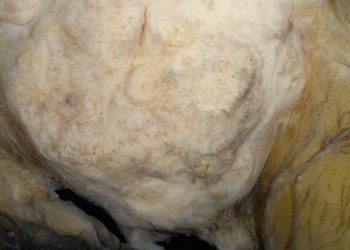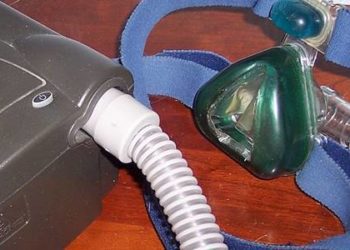BRCA1 mutation linked to lower AMH levels
1. Women with a BRCA1 mutation had lower anti-Müllerian hormone (AMH) levels than non-carriers.
2. There was no association between BRCA2 mutation status and AMH levels.
Evidence Rating Level: 1 (Excellent)
Study Rundown: The BRCA genes, BRCA1 and BRCA2, are two tumor suppressor genes that encode proteins integral to the repair of DNA double-strand breaks. Germline BRCA mutations are highly penetrant, demonstrate autosomal dominant inheritance pattern and are responsible for the majority of hereditary breast and ovarian cancers. Women with a BRCA1 mutation have about a 60% lifetime risk of developing breast cancer and a 40% lifetime risk of developing ovarian cancer, while women with a BRCA2 mutation have about a 40% lifetime risk of breast and 20% lifetime risk of ovarian cancer. In addition to their role in tumor suppression, preliminary data suggests that BRCA genes may impact ovarian aging. Recent small studies demonstrated that BRCA1 mutation carriers might have impaired ovarian reserve. However, many of these studies were small or conducted in murine models. In the present work, researchers used a pre-existing cohort of women with a family history of breast cancer to compare ovarian reserve, as measured by AMH levels, by BRCA1 and 2 mutation status.
Findings demonstrate that BRCA1 mutation carriers had significantly lower AMH levels compared to non-carriers. Findings are strengthened by large sample size and use of a validated marker of ovarian reserve. However, women whose familial ovarian cancer risk is BRCA-related and who test negative for the mutation experience a very low risk of ovarian cancer such that use of BRCA non-carrier controls may bias results away from the null. In other words, employing a control group of women with a strong family history of ovarian cancer that is not BRCA-associated would inform whether the association observed here is due to a unique role of BRCA1 in the ovarian aging process or is instead a shared common pathway of impaired ovarian repair such that all women at increased risk of ovarian cancer also experience lower ovarian reserve. Additionally, AMH levels are a validated marker of ovarian reserve but not of fecundity, meaning they cannot be used to counsel patients on natural fertility. Future studies might use clinical fertility outcomes, such as time to pregnancy, to further explore this relationship, and employ a control group of women with family history of non-BRCA-associated ovarian cancer.
Click to read the study in Human Reproduction
Relevant Reading: Do BRCA1 and BRCA2 mutation carriers have earlier natural menopause than their noncarrier relatives?
In-Depth [cross-sectional study]: AMH levels were measured on stored plasma samples from women enrolled in the Kathleen Cuningham Foundation Consortium for research in the Familial Breast Cancer (kConFab) cohort study. Eligible women were 25-45 years old, with no personal history of cancer but a family history of BRCA1 or BRCA2 mutation. AMH levels were accessible for 172 carriers and 216 non-carriers from families carrying BRCA1 mutations, and 147 carriers and 158 non-carriers from families carrying BRCA2 mutations. Linear regression was used to assess association between plasma AMH and carrier status, adjusting for age at plasma storage, oral contraceptive use, BMI, and smoking status.
Compared to non-carriers, BRCA1 mutation carriers had 25% lower AMH concentrations than non-carriers (95%CI: 5%-41) and were more likely to have AMH levels in the lowest quartile (OR: 1.84, 95%CI: 1.11-303). There was no association between BRCA2 mutation status and AMH levels.
Image: PD
©2015 2 Minute Medicine, Inc. All rights reserved. No works may be reproduced without expressed written consent from 2 Minute Medicine, Inc. Inquire about licensing here. No article should be construed as medical advice and is not intended as such by the authors or by 2 Minute Medicine, Inc.








